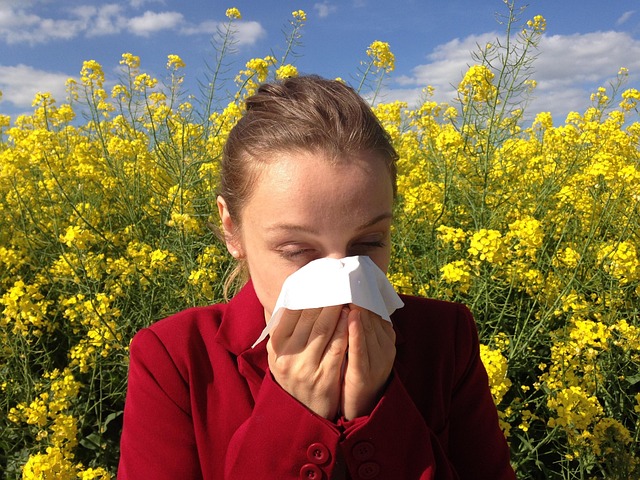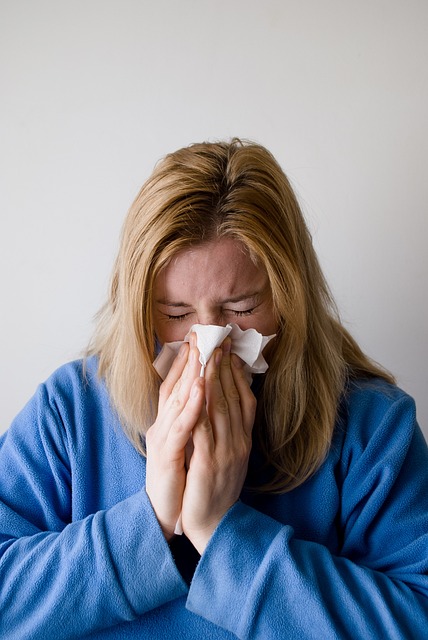Mold, a natural decomposer, thrives in damp environments, posing significant health risks. Its microscopic spores can cause respiratory irritation, coughing, and exacerbate conditions like asthma. Severe cases may lead to memory issues and neurological problems. Exposure to mold spores has severe consequences for vulnerable individuals, including prolonged breathing difficulties, chronic sinus infections, and even COPD development. Direct contact or inhalation can also result in skin and eye irritations, allergies, and immune system damage. Prompt action, such as regular cleaning and moisture control, is vital to mitigate these health effects, especially for children and the elderly, ensuring a healthier living environment.
“Unvisible to the naked eye, household mold can have profound health effects, causing a range of illnesses from respiratory issues to skin irritations. This article delves into the understanding of mold growth in homes, its impact on immune systems, and the common allergic reactions it triggers. From respiratory problems like asthma to skin and eye irritations, we explore the subtle yet significant health dangers of mold exposure, shedding light on the importance of prevention and proper remediation.”
- Understanding Mold Growth in Households
- Respiratory Issues Associated with Mold Exposure
- Skin and Eye Irritations Caused by Mold
- Impact of Mold on Immune System Functioning
- Common Allergic Reactions to Mold Spores
Understanding Mold Growth in Households

Mold is a natural part of our environment, playing a crucial role in breaking down organic matter. However, when it comes to household mold, understanding its growth and potential health effects is essential. Mold thrives in damp and humid conditions, making homes with leaky pipes, poor ventilation, or inadequate drainage particularly susceptible. It can quickly spread and grow unseen, often behind walls or under flooring, where it produces microscopic spores that become airborne.
These spores can trigger a range of health issues, especially for individuals with pre-existing respiratory conditions like asthma or allergies. The health effects of mold exposure vary from mild to severe, including respiratory irritation, coughing, wheezing, and in some cases, more serious symptoms like memory issues, headaches, and even neurological problems. Recognizing the signs of mold growth and promptly addressing it is vital to maintain a healthy living environment.
Respiratory Issues Associated with Mold Exposure

Mold exposure can have significant respiratory impacts, particularly for individuals with existing lung conditions or weakened immune systems. When mold spores are inhaled, they can trigger a range of health effects related to the respiratory system. These issues often manifest as persistent coughing, wheezing, and difficulty breathing. In some cases, long-term exposure may lead to chronic sinus infections, asthma attacks, and even chronic obstructive pulmonary disease (COPD).
The health effects of mold go beyond mere irritation. Certain molds produce toxic compounds known as mycotoxins, which can further aggravate respiratory conditions and potentially cause or exacerbate neurological issues. Prolonged exposure to these toxins may result in a range of symptoms, from mild allergies to more severe, chronic health problems, underscoring the importance of addressing mold issues within households promptly.
Skin and Eye Irritations Caused by Mold

Mold, a common household problem, can cause more than just structural damage; it often leads to various health issues, with skin and eye irritations being among the most noticeable. When individuals come into direct contact with mold or breathe in mold spores, they may experience discomfort and potential long-term health effects. Symptoms can include itching, redness, and stinging sensations in the eyes, skin, and nasal passages. Those with existing allergies or respiratory conditions are particularly susceptible to these irritations.
Prolonged exposure to mold can result in chronic inflammation and even damage to the immune system, especially in children and the elderly. It’s crucial to address mold issues promptly to mitigate these health effects. Regular cleaning, proper ventilation, and maintaining a moisture-free environment are essential steps to minimize mold growth and protect overall well-being within the home.
Impact of Mold on Immune System Functioning

Mold, a common household issue, can have significant health effects on individuals, particularly those with compromised immune systems. When people breathe in mold spores or come into direct contact with it, their immune responses are triggered, which can lead to various reactions. For some, this may result in mild symptoms like sneezing, runny noses, and itchy eyes, especially during allergy seasons. However, for others, prolonged exposure to mold can cause more severe health issues.
The impact of mold on the immune system is complex. While a healthy immune response helps fight off potential infections, chronic exposure to mold spores can lead to persistent inflammation and allergies. This is especially true for individuals with pre-existing respiratory conditions or those whose immune systems are weakened due to age, medical treatments, or other health issues. As a result, people living in homes with extensive mold growth may experience frequent respiratory infections, increased susceptibility to diseases, and even cognitive impairments over time.
Common Allergic Reactions to Mold Spores

Mold spores, often invisible to the naked eye, can trigger a range of allergic reactions in sensitive individuals. These reactions are primarily due to the immune system’s overreaction to the mold’s presence, interpreting it as a foreign invader. Common symptoms include sneezing, runny or blocked noses, itchy eyes, and coughing. For those with existing respiratory conditions like asthma, exposure to mold spores can lead to more severe reactions, such as wheezing, difficulty breathing, and increased asthma symptoms.
The health effects of mold extend beyond allergies. Prolonged exposure may cause chronic issues, especially in individuals already susceptible to respiratory problems. This can result in persistent coughing, throat irritation, and even neurological symptoms like headaches and fatigue. It’s important to address mold-related issues promptly to mitigate these potential long-term health effects and create a healthier living environment.
